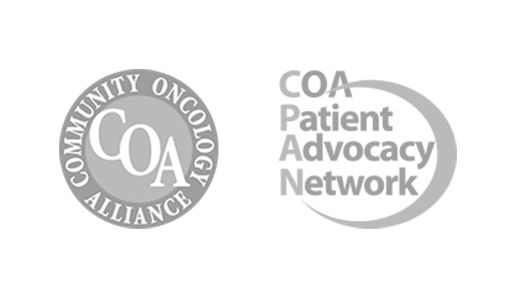Did you know that cancer is the second-leading cause of death in the US?
Have you seen the pink ribbons some health organizations distribute in October? Pink ribbons in October represent breast cancer. Cancer awareness groups and health organizations distribute these ribbons for breast cancer awareness.
There are different months and colors for different kinds of cancer. For example, white ribbons in November give awareness to lung cancer. Purple or lavender ribbons give awareness to all cancers and cancer survivors.
Colorectal cancer awareness takes place in March. Its awareness color ribbon is dark or royal blue. In the US, colorectal or colon cancer is the third most common type of cancer.
Looking to know more? We’ve got you covered! Discover more about colorectal cancer below:

adult and child hands holding Blue ribbon, Colorectal Cancer Awareness month
What Is Colorectal Cancer?
Colorectal cancer is cancer of the colon or large intestine. It is the overproduction of cancerous cells in the final part of the digestive tract. Another term for colorectal cancer is colon cancer.
Often, cancer in the colon begins with noncancerous cell groups called adenomatous polyps. The polyps grow and become tumorous over time. Polyps can be small and produce few symptoms, thus the need for colon cancer awareness.
More than 50,000 Americans die yearly from colorectal or colon cancer. This type of cancer can affect men and women alike as well as all racial and ethnic groups. This cancer is most common with the elderly, developing more often in 50 years old and above.
What Are the Symptoms?
Often, in its early stages, people with colon cancer will not experience its symptoms. Only when cancer develops further will most people notice symptoms. The symptoms will vary depending on the location of cancer in the colon and its size.
The symptoms include a change in bowel habits, diarrhea, or constipation. Long, thin stools or a change in stool consistency is also a symptom. When the mentioned symptoms last longer than four weeks, get checked for colon cancer.
Other signs of colorectal cancer include blood in the stool or rectal bleeding. Take note also of persistent discomfort in the abdomen area such as pain, bloating, or gas. Another symptom is when you feel that you haven’t emptied your bowels completely or when you have an urgent need to have a bowel movement.
With these symptoms, you may also feel weakness or fatigue. Weight loss and loss of appetite are accompanying symptoms. In the later stages of the disease, you may feel pain in the pelvic area.
Remember, as soon as you observe these signs, get checked as soon as possible. Yet, do not assume it is colon cancer at once for many other things can cause these symptoms. Talk to your doctor to confirm your health issues.
Your doctor may ask that you get a rectal exam. He may also ask for a colonoscopy or sigmoidoscopy for you. In these exams, your doctor will insert a long, flexible tube into the rectum to check for unusual growths.
What are the Causes of Colorectal Cancer?
March is more than the national colon cancer awareness month. The March cancer awareness movement gives attention to kidney cancer and multiple myeloma cancer as well. Colon cancer awareness month emphasizes the risk factors for colon cancer.
The following are risk factors for colon cancer:
- Age
- Race
- Personal history with polyps
- Inflammatory intestinal conditions
- Family history with colorectal cancer
- Diet: Low-fiber, high-fat
- Inactive lifestyle
- Obesity
- Smoking
- Alcohol
- Diabetes
As listed above, people who are 50 or older have a higher chance of colon cancer. African-Americans are also more likely than other racial groups to get colon cancer. If you have had colorectal cancer, there is a higher chance of getting it again.
Inflammatory conditions of the colon like Crohn’s disease give you a high chance of cancer. While the growth of polyps in the inner wall of the colon isn’t harmful, they can lead to cancer. A specific type of polyps, adenoma, are cancerous.
A lifestyle of inactivity, alcohol-drinking, and smoking give you a higher chance to get colon cancer. The presence of diabetes and obesity also do the same. Eating a lot of fat and cholesterol and little fiber may lead to cancer.
Colorectal cancer is preventable if everyone received regular screenings. Older people should get regular checkups. This is so they can find early solutions to still-developing cancer before it’s too late.
Regular check-ups may be expensive. Yet, compared to the cost of cancer treatment, it’s worth the investment. Invest in your health and your future.
What are the Treatment Options?
We will tackle how the treatment goes precancer and in cancer stages.
In the precancer stage, when the doctor finds an adenomatous polyp during a sigmoidoscopy exam, they will conduct a search for more. They will remove them until the colon is clear of polyps. You will then have follow-up exams and screenings to see if it continues to grow.
You can also choose to remove parts of or your whole colon to prevent cancer. This is often the case with inflammatory bowel disease. Doctors will replace your colon with an alternative pouch to preserve bowel function.
When you are past the precancerous stage, you have three treatment options. These will depend on the stage of cancer. These options are surgery, chemotherapy, and radiation.
You can also opt for targeted drug therapy. This goes with chemotherapy or on its own. Your doctor will prescribe drugs that target cancer cells.
Immunotherapy is a possible solution for patients with advanced colon cancer. Proton beam therapy and palliative care are also other choices. Look for cancer treatment clinics with advanced equipment and treatment processes.
AO Multispecialty Clinic is a cancer treatment clinic that has advanced treatment options with low costs for the patients.
Remember, these all depend on how advanced your cancer is. This is why it’s always better to reduce the risks of developing cancer rather than treat it. Prevention is much better than cure, as the saying goes.
Dealing with and Spreading Colorectal Cancer Awareness
Coping with treatment for colon cancer can be difficult. There are physical, emotional, and social side effects. Financial stress is also a problem for most cancer patients undergoing treatment.
There is no easy way to inform loved ones about your cancer. They must understand your situation and be able to support you. Emotional and physical support for a person with cancer can go a long way.
Sit down and talk to them about the disease, its side effects, what you expect to happen. Talk about treatment options and financial matters. Communicate with each other about future plans and if the patient needs caregiving.
Medicine and therapy can be painful for the patient. You should start talking to health care experts. Process insurance and billing issues when you can or with the help of a loved one.
When you can, join awareness groups. Let others know about colon cancer. Spread the word and help others prevent or defeat colon cancer.
Share This Knowledge and Save Lives
That’s our piece on colon cancer.
Colorectal cancer awareness month takes place in March. Join a cancer support community when you can. Share your experiences and stories to inspire others to stay positive.
Was the read helpful and informative? Contact us or visit our page. You can ask us any questions about cancer and cancer treatment.





